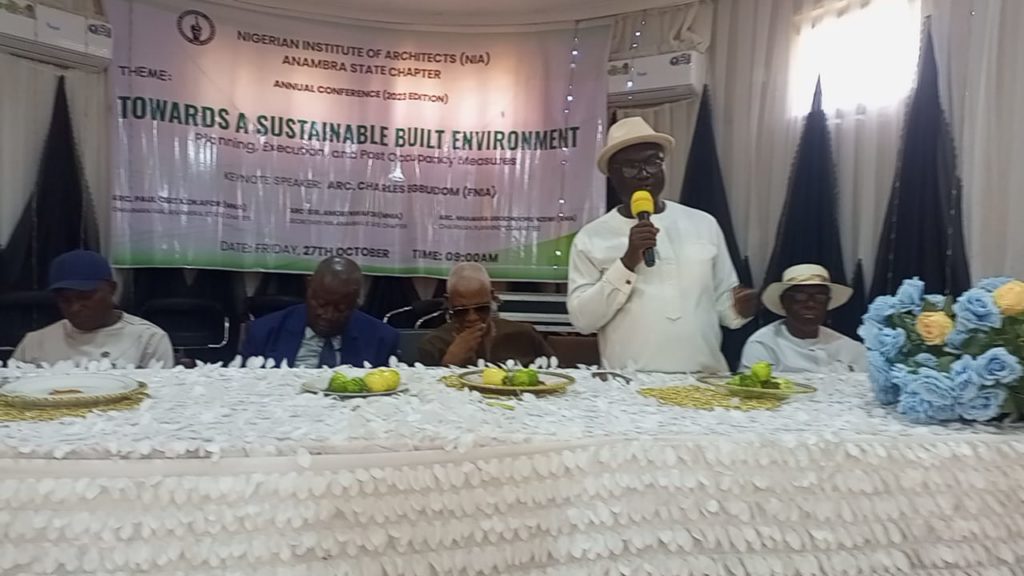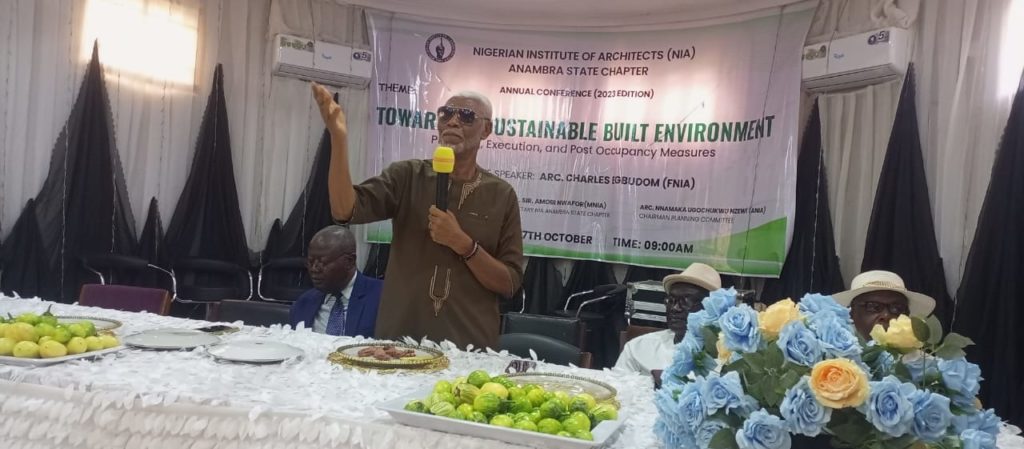Why government projects are mostly abandoned – Arc Egbudum
Felix Oti, Awka
Reasons for the abandonment of projects by the government of most states in Nigeria have been explained at the annual conference of the Nigerian Institute of Architects (NIA).
NIA Anambra State Chapter hosted its annual conference for the year 2023 at Nnamdi Azikiwe University Awka, featuring a diverse range of discussions and presentations, centered on the critical issue of ensuring sustainability in the environment.
Themed: “Towards a Sustainable Built Environment: Planning, Execution, and Post-Occupancy Measures,” t he event attracted architects, professionals, students, and stakeholders from the architectural and construction industry across the nation.
Addressing the gathering, Architect Charles Egbundom, said most of the projects conceived by governments are not viable.
Egbundom, who was a keynote speaker at the event said it was from experience that he knew that it was the reason the projects are abandoned, especially by state governments.

“Am talking from experience which I see every day. Most of the government projects are not viable, the reason they are abandoned.”
He advocated for sustainable practices in planning, execution, and post-occupancy measures in the built environment, noting the significance of architecture in addressing environmental concerns.
He further urged architects to scavenge for knowledge, adding that the professionals are expected to be a compendium of knowledge.
Another speaker, Architect Don Ifejika, who chaired the occasion, said the conference will contribute to raising awareness about the importance of sustainability in the built environment and inspire architects and professionals to embrace eco-conscious design and construction methods.
Managing Director, Bureau of Public Procurement, Anambra State, Architect Okey Ezeobi, pointed out that the standard of architectural practice in Nigeria has dropped as many as are in a hurry to make money, revealing that the event served as a platform for learning, collaboration, and a renewed sense of purpose in creating a more sustainable future through architecture.
Anambra NIA Chairman, Architect Paul Okafor, said the conference’s theme was chosen recognizing its relevance in today’s world. He said climate change and environmental sustainability are critical issues, affirming that the Institute is working hard to reduce quacks from the profession.

The climax of the event was the presentation of awards to participants who have contributed significantly to the Architecture profession. Prizes were also given to students who won the 2023 Architectural competition.






